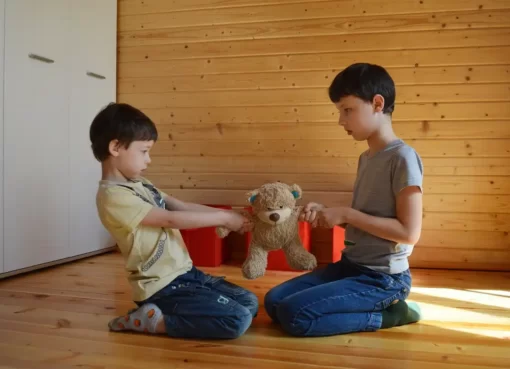Introduction
Most adults will have children at some time in their life. And while most of us strive to be great parents, we may find ourselves confused and frustrated by the seemingly endless challenges of parenthood.
But there is good news — many research tools and techniques are now available to parents. These resources provide a wealth of information on common parenting challenges (e.g., sleep disorders, unwanted diet, stress, behavioral problems, risk, etc.); and a variety of learning subjects that are just part of growing up (e.g., starting a school, being respectful, making friends, being responsible, making good choices, etc.).
With its focus on happiness, resilience, and positive youth development. The field of relevant psychology is crucial to successful parenting discussions. Therefore, even if you are a parent trying to avoid potential problems; or you’ve already pulled your hair out you’ve come to the right place.
This article provides a comprehensive integration of ideas and strategies that will cover various developmental periods, challenges, and situations. Specifically, when we take a rich and powerful set of research, we will focus on what it means to be a direct parent; its many benefits; when and how it is used; and its usefulness in certain issues and age groups.
What Is Positive Parenting?
Before we define positive parenting, let’s take a step back and consider what it means to be “parents.” While much of the parenting research has focused on the role of mothers. The mental and emotional well-being of children is influenced by all the people involved in their development.
Such caregivers may include biological and adoptive parents, foster parents, single parents, adoptive parents, older siblings, and other relatives and non-relatives who play a significant role in the child’s life. In other words, the word “parent” applies to a list of people who are present & have an impact on the health and well-being of children
Therefore, at any time the words “parent” or “caregiver” are used here; apply to any person who shares a consistent relationship with the child, and an interest in his or her well-being.
Fortunately, parental research has moved away from a deficit or risk model to focus more on predictors of positive outcomes (e.g., protective factors). Being a good parent is an example of this approach by seeking to promote child-rearing methods that are critical to promoting good youth development.
Personal Development of a Child
There are various processes in which a good upbringing promotes a child’s development.
Positive parenting contributes to children’s adolescence by developing emotional control (e.g., “active control” that allows children to focus on care in a way that promotes mood swings and speech).
The authors reported a significant link between parental warmth and positive expression in children’s long-term emotional regulation. This ability to use effective control was acquired to predict the reduction of external discharge problems in later years when children are younger.
Along with emotional control, there are many other ways in which good parenting promotes a child’s positive growth and development.
Here are some examples:
- Teaching and leadership build children’s confidence and provide them with the tools they need to make good decisions.
- Good communication promotes children’s problem-solving and problem-solving skills while improving the quality of relationships with caregivers and peers.
- Children’s self-esteem and confidence are increased when their parents are warm and democratic.
- Parental supervision promotes positive peer pressure and positive teen outcomes.
- Self-raising parenting supports creativity, power, and choice.
- Supportive and hopeful parenthood promotes children’s trust in them and in the future.
- Providing positive behavioral recognition enhances children’s efforts and opportunities to engage in positive, healthy behavior.
- Providing boundaries and outcomes teaches children to be responsible and accountable.
In general, there are many aspects of child-rearing that boost children’s self-esteem; wisdom; belief in the future; the ability to get along with others; and the power to control their environment.
Warm, loving, and supportive parents nurture a child’s inner spirit while giving him the strength and knowledge needed to approach life as a fully competent person.
Benefits
- Better school preparation among children
- An additional motivation among infants
- High internal insertion among infants
- Better mental performance among teens
- Reduced symptoms of weight loss among adolescents
- Growing confidence among young people
- Increased confidence among children
- Growing confidence among young adults
- Increasing social functioning among young people
- Many positive outcomes among children, such as safe parental attachment, and better cognitive development and social development
- Improved school preparation among children
- Growing cognitive and social effects among school children
- Many reductions in problem behaviors and increased skills among children as well as youth — such as self-esteem, coping, academic goals, and career aspirations
- Minor behavioral problems among children
- Inferior parental styles below
- Higher sense of parenting ability
- Long-term reduction in behavioral problems among children
- Decreased family conflict and stress; declining behavioral problems and behavioral disorders among children; improved family reunion, communication, and order; improved reinforcement between children and parents
- Decreased behavioral problems and positive growth among children
- Increased emotional control combined with a variety of positive effects among children and adolescents
- Many positive effects among children and adolescents; such as following the growth of law, greater cognitive skills, more school readiness, less apathy, greater willingness to try new things, better cognitive development and social development, better language development, better conversational skills, and less socially inconsistent behavior.
- Increased intensity between children and adolescents
- Expanding social skills among the youth
- Improved ability to withstand peer pressure among young people
Ideal Parenting Patterns
The ongoing theme in good parenting books is that a warm, yet strong style of parenthood is linked to the many positive effects of teens. This style is called ‘authority and is thought of as a maternity approach that incorporates a good balance of the following parenting qualities: firmness, but not intrusion; what you want, but what you answer; disciplinary support, but not punishment. This is typically seen in positive parenting.
Along with parental authorization style, parental style is believed to support positive outcomes for children.
Raising a parent is a good parental style that promotes the positive development of the child by providing love (that is, by positive expressions of warmth to the child); responding (that is, by paying attention to the child’s directions); promoting (that is, by supporting the child’s strengths and interests); and teaching (that is, through play and conversation to support a child’s mental development.
Raising children obviously shares many similarities with authoritative parents, and both represent good parenting methods.
All in all, by carefully considering the best parenting techniques that work in raising healthy, happy children; It is clear that good parenting styles promote a child’s independence by:
- Supporting evaluation and involvement in decision-making
- Pay attention to and respond to the needs of the child
- Effective communication is used
- Attending speech and emotional control of a child
- Reward and encourage good behavior
- Giving clear rules and expectations
- Incorporating consistent effects on behavior
- Provide adequate monitoring and evaluation
- Acting as a good example
- Making the best of family experiences a priority
In short, parents adhering to positive parenting, support the child’s healthy development and inner spirit by being loving, supportive, firm, consistent, and involved. Such parents go beyond the obvious, and they set an example for their children by being good examples.
Direct Discipline
The word “discipline” conveys the idea of restraint and punishment. However, ‘discipline’ is actually defined as “training that corrects, molds, or perfects mental strength or moral character”.
This definition is instructive, as it reminds us that as parents, we are not punishment teachers, but rather teachers. As teachers of our children, our goal is to show them respectful choices of behavior and to reinforce positive behaviors that change.
Proper discipline also compels you to be a responsible parent because it should be done in a firm and loving manner at the same time. Importantly, good discipline has never been more violent, aggressive, or judgmental; it does not punish.
Five Methods of Discipline
- Kind yet strong behavior
- Promotes a Child’s Feelings of importance
- Long-term (note: penalty may have an immediate effect, but this is temporary)
- Teaches essential social and health skills (i.e., problem-solving, social skills, relaxation, etc.)
- Helps children develop a sense of involvement
A number of important aspects of good conduct, such as nonviolence, respect, and focus on principles of development; teaching children self-respect, empathy, and hard work; and promoting good relations between parent and child.
Knowing that good discipline does not involve the use of punishment; the following obvious questions become “What exactly is involved?”
This question is undoubtedly urgent for parents who feel that their child is driving them crazy. These are the testing times when the parents have to show positive principles of discipline towards their child.
The Top Ten Principles
- Treat your child in the same manner in which you would like to be treated.
- Use good reinforcement with the sound behaviors that you want. The reward of such conduct is praise, love, appreciation, rights, etc.
- Give your child a reason to behave in a certain way, such as playing a game rather than watching TV.
- Give the child two moral decisions to feel empowered. For example, would you say “Would you like to take a shower before and after brushing your teeth?”
- Make sure rewards are lost when rules are broken. For example, you could say “After cleaning your room, you can play outside” (meaning that a child who does not clean his or her room, will not be able to play outside. Time.)
- Make sure the child feels loved and cared for before behavioral problems are resolved.
- Verification principle: Verify the child’s feelings. For example, you could say “I know you’re sad about losing your sleepover tonight and I understand”.
- Make sure the child feels the equivalent of “having a good head on your shoulders” so that they feel comfortable, empowered, and responsible for their choices. This is especially important for young ones.
- Make sure your child feels important and pretends to be his. For example, remind your child that you really can help in the kitchen and that the family needs this help to have dinner.
- Set a timer to help children make changes. This helps children to know what is expected of them and may include giving them a choice in terms of time. Be sure to let the child know that the time has been set.
Toddlers and Preschoolers
The idea of being a parent to a child can be frightening, even for those with hard hearts. This probably doesn’t help with words like ‘two brave ones,’ and jokes like “Having a two-year-old is like having a blender, but you have nothing special about it”.
Indeed, toddlers and preschoolers get a bad rap; but sometimes they look like little drunk creatures who drop everything in their path. Not to mention the amount of noise and energy, the change of mood, and the need for independence.
While their lack of communication and communication skills can be appealing and often amusing, and they have the power to leave their parents in the lurch.
Conclusion
Raising children properly through positive parenting is an effective way of raising children which is appropriate for both parents and children. This write-up contains a rich and comprehensive collection of good parenting research and resources; for the purpose of equipping caregivers with tools to prevent or address a wide range of potential challenges. And of course, promoting well-being and healthy growth in children.
Here are the closing notes of this article:
- Parents are never alone. Whatever the problem or frustration, there is a whole community of parents facing similar problems. Not to mention the number of child-rearing professionals who have effective solutions.
- Being a good parent starts early. Being a good parent begins when a person realizes that he or she is going to be a parent because even the planning that prepares for the child’s arrival will have an impact.
- Being a good parent applies to all aspects of growing up. With good parenting skills, raising teenagers and teenagers does not have to be intimidating or intimidating. Being a good parent promotes successful, happy parenting of all ages.
- Straight parents raise their children in a way that enables them to reach their full potential as strong, satisfied people. Loyal parents are warm, caring, loving, and supportive — and much more: They are teachers, leaders, and role models. They are consistent and clear about expectations. They know what their children and teens are doing. They encourage and strengthen good morals. They make the family experience a priority. They support their children’s independence and independence. They love their children unconditionally. They engage in casual, open conversations with their children. They are loving, compassionate, and supportive. They realize that their teenagers still need them.
- Proper discipline is an effective, evidence-based method that provides neither punishment nor tolerance. Good discipline is given in a loving way without anger, threats, scolding, or punishment. Includes clear rules, expectations, and consequences of behavior; and consistent tracking. It is in line with the parents’ long-term goals of parenthood.
- Proper child-rearing is supported by strong evidence supporting its many benefits. Being a good parent improves children’s self-esteem, emotional well-being, hard work, sense of belonging, social and decision-making skills, and self-confidence. Being a good parent promotes safe attachments and quality relationships with parents; school readiness and success; reduced behavioral problems, symptoms of depression, and risky behaviors; and positive youth development in general. The effects associated with being a good parent are long-lasting and often last forever.
- Raising children properly is challenging for many. Being a good parent applies to everyday challenges, as well as to the most frustrating and difficult issues. Being a good parent should be used effectively to deal with anger, bedtime and eating disorders, and sibling conflict; and the difficulties associated with divorce, ADHD, family stress, adolescent stress, and risk – and much more.
- Specific child-rearing solutions are plentiful and accessible. Because of the precise nature of child-rearing, they have faced many child-rearing problems, and the resources available are numerous. As well as many of the advice and suggestions contained in this article; there is a complete online library with good parenting-related activities, workbooks, books, videos, tutorials, articles, and podcasts covering a wide range of parenting topics.
By considering the many good parental solutions and resources now available, parents can look at their role as teachers, leaders, and role models with confidence and confidence. And, finally, by consistently applying good parenting techniques; parents will experience deep and meaningful communication with their children that will last a lifetime.
Citations/credits:
https://positivepsychology.com/positive-parenting/
https://positivepsychology.com/resilience-in-children/
https://positivepsychology.com/positive-reinforcement-classroom/
https://positivepsychology.com/positive-reinforcement-psychology/
https://www.positivediscipline.com/
https://positivepsychology.com/positive-parenting-tips-skills-techniques/





Thank you for your shening. I am worried that I lack creative ideas. It is your enticle that makes me full of hope. Thank you. But, I have a question, can you help me? https://www.binance.com/en/register?ref=P9L9FQKY
Your article helped me a lot, is there any more related content? Thanks! https://www.binance.info/id/join?ref=WTOZ531Y
Wow, awesome weblog structure! How long have you ever been running a blog
for? you make running a blog look easy. The entire
look of your web site is wonderful, as smartly as the
content material! You can see similar here e-commerce